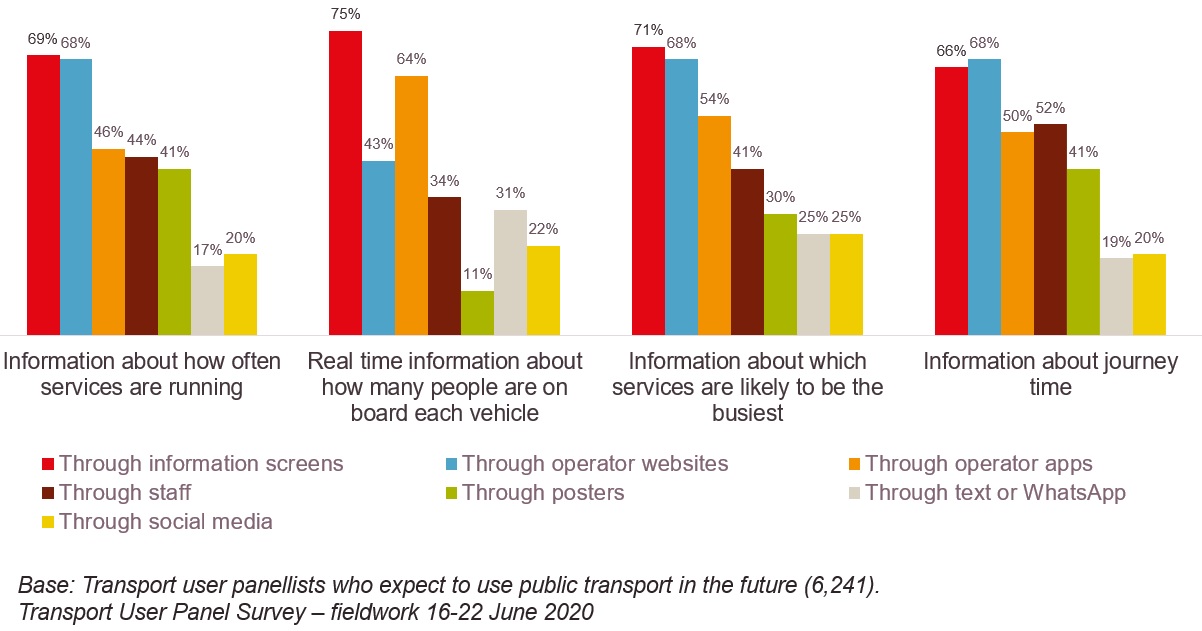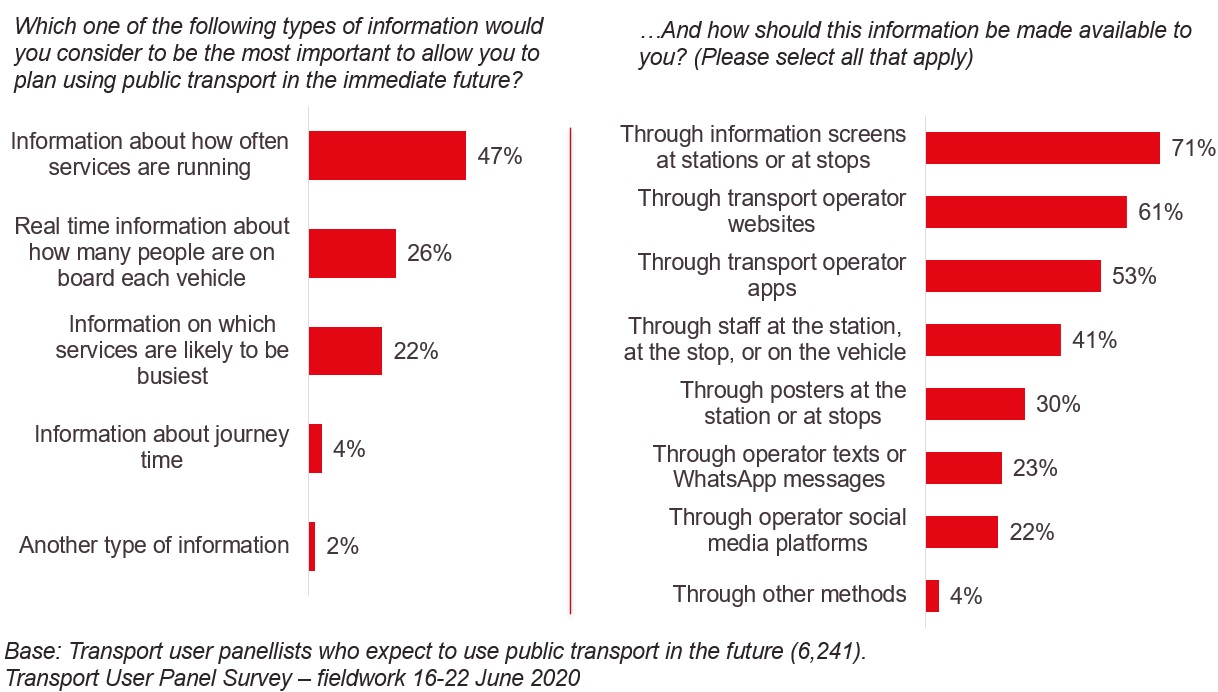Clarity of messaging for public transport
08 July 2020
Last weekend saw the opening of hospitality, pubs, hairdressers, and other parts of society again after nearly four months of being closed. Many people will have welcomed getting back to at least some form of normality. However, if people are visiting these places, they may be uncertain whether they should, or indeed are allowed to, use public transport.
For some the only option to get a long-awaited haircut, see a family member or to visit a pub is to use public transport. It is not fair that those that do not have alternatives to public transport may be discouraged to use it due to unclear and inconsistent messages.
Our Transport User Panel research asked passengers about the information they needed to plan a journey using public transport in the near future. The priority was information about how often services are running and how busy they might be, with two of the key sources of this being operators’ websites and apps. When people do begin to plan journeys again it is important that they receive clear messages about who can travel.


Having checked various transport sources of information my colleagues at Transport Focus found conflicting messages. Many public transport operators are continuing to issue strong messages such as ‘necessary journeys only’, or ‘essential travel only’, and in some cases ‘do not travel by train for leisure’. In many cases this message is much stronger than the Department for Transport’s main advice merely to ‘consider all other forms of transport’. However, those looking to use local buses would see a more welcoming approach.
Transport Focus has written to the Secretary of State for Transport, Grant Shapps MP, urging him to look at consistency of messaging across government and industry.



